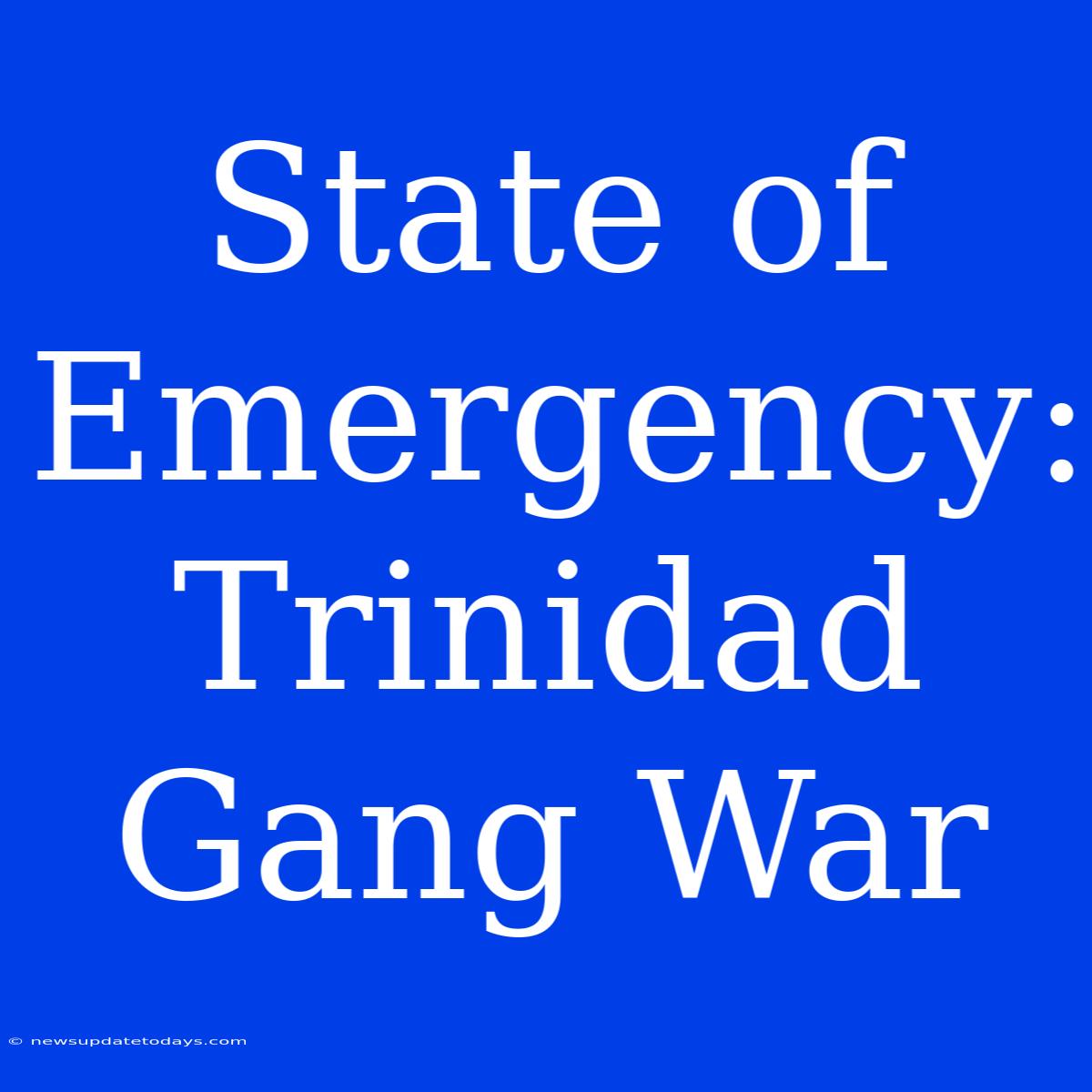Trinidad & Tobago's Gang War: A State of Emergency and its Implications
Trinidad and Tobago is grappling with a surge in gang violence, forcing the government to declare a state of emergency (SOE). This drastic measure highlights the escalating crisis and the urgent need for effective solutions. This article delves into the complexities of the gang war, examining its causes, consequences, and the potential impact of the SOE.
The Roots of the Conflict:
The current state of unrest isn't a sudden eruption; it's the culmination of decades of socio-economic issues that have fueled gang activity. Key factors contributing to the escalating violence include:
- Socio-economic Inequality: Widespread poverty, lack of opportunities, and unequal distribution of wealth create fertile ground for criminal organizations to thrive. Young people, particularly in marginalized communities, are often lured into gangs for survival and a sense of belonging.
- Weak Law Enforcement: Critics argue that insufficient resources, corruption within the police force, and a lack of effective crime-fighting strategies have allowed gangs to flourish. Slow judicial processes further exacerbate the problem.
- Easy Access to Firearms: The proliferation of illegal firearms significantly increases the lethality of gang conflicts. The porous borders and inadequate gun control measures make it relatively easy for gangs to acquire weapons.
- Political Instability (Indirect Factor): While not a direct cause, political instability and a lack of strong, decisive leadership can indirectly contribute to the breakdown of law and order, creating space for criminal elements to operate.
The Impact of the State of Emergency:
The declaration of a state of emergency empowers the authorities to take extraordinary measures, including:
- Increased Police Presence: A heightened police presence in affected areas aims to disrupt gang activities and deter further violence.
- Curfews and Restrictions: Curfews and movement restrictions are implemented to limit gang mobility and reduce opportunities for conflict.
- Enhanced Surveillance: The use of technology and intelligence gathering is stepped up to track gang movements and identify key players.
- Detention without Trial: This controversial measure allows authorities to detain suspects for extended periods without charge, raising concerns about human rights violations.
Challenges and Concerns:
While the SOE might offer short-term relief, it faces several challenges:
- Human Rights Violations: The potential for abuses of power and violations of human rights during a state of emergency is a significant concern. Transparency and accountability are crucial to mitigate these risks.
- Long-Term Solutions: The SOE is primarily a short-term measure. Addressing the root causes of gang violence, such as poverty, inequality, and lack of opportunity, requires long-term, comprehensive strategies.
- Community Engagement: Sustainable peace requires engaging with communities affected by gang violence. Building trust between law enforcement and citizens is vital for long-term success.
- Effectiveness: The effectiveness of previous states of emergency in addressing long-term gang issues remains debatable. A thorough evaluation of the SOE's impact is necessary.
Moving Forward:
Addressing Trinidad and Tobago's gang crisis requires a multi-faceted approach that goes beyond the immediate measures of a state of emergency. This includes:
- Investing in social programs: Providing education, job training, and economic opportunities in marginalized communities is essential to break the cycle of poverty and violence.
- Strengthening law enforcement: Investing in police training, improving intelligence gathering, and enhancing the judicial system are crucial for effective crime fighting.
- Implementing stricter gun control: Strengthening gun control measures is vital to reduce the availability of firearms.
- Promoting community-based initiatives: Empowering communities to participate in crime prevention and conflict resolution can foster trust and improve social cohesion.
The current state of emergency in Trinidad and Tobago underscores a deep-seated crisis. While offering temporary relief, it's crucial to remember that lasting peace requires a comprehensive strategy addressing the root causes of gang violence and fostering collaboration between the government, law enforcement, and the community. Only then can a sustainable solution be achieved.

